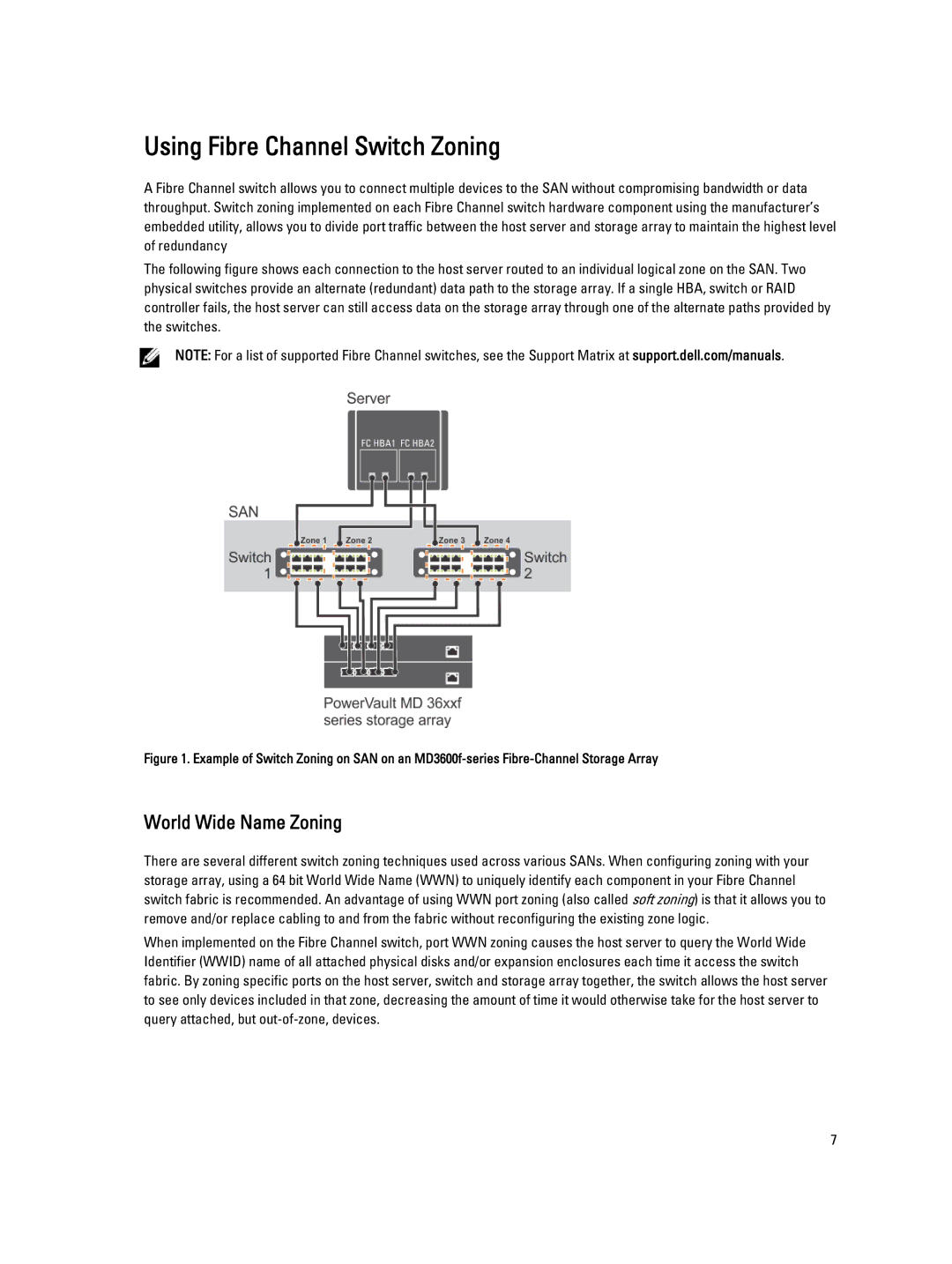
Using Fibre Channel Switch Zoning
A Fibre Channel switch allows you to connect multiple devices to the SAN without compromising bandwidth or data throughput. Switch zoning implemented on each Fibre Channel switch hardware component using the manufacturer’s embedded utility, allows you to divide port traffic between the host server and storage array to maintain the highest level of redundancy
The following figure shows each connection to the host server routed to an individual logical zone on the SAN. Two physical switches provide an alternate (redundant) data path to the storage array. If a single HBA, switch or RAID controller fails, the host server can still access data on the storage array through one of the alternate paths provided by the switches.
NOTE: For a list of supported Fibre Channel switches, see the Support Matrix at support.dell.com/manuals.
Figure 1. Example of Switch Zoning on SAN on an MD3600f-series Fibre-Channel Storage Array
World Wide Name Zoning
There are several different switch zoning techniques used across various SANs. When configuring zoning with your storage array, using a 64 bit World Wide Name (WWN) to uniquely identify each component in your Fibre Channel switch fabric is recommended. An advantage of using WWN port zoning (also called soft zoning) is that it allows you to remove and/or replace cabling to and from the fabric without reconfiguring the existing zone logic.
When implemented on the Fibre Channel switch, port WWN zoning causes the host server to query the World Wide Identifier (WWID) name of all attached physical disks and/or expansion enclosures each time it access the switch fabric. By zoning specific ports on the host server, switch and storage array together, the switch allows the host server to see only devices included in that zone, decreasing the amount of time it would otherwise take for the host server to query attached, but
7
